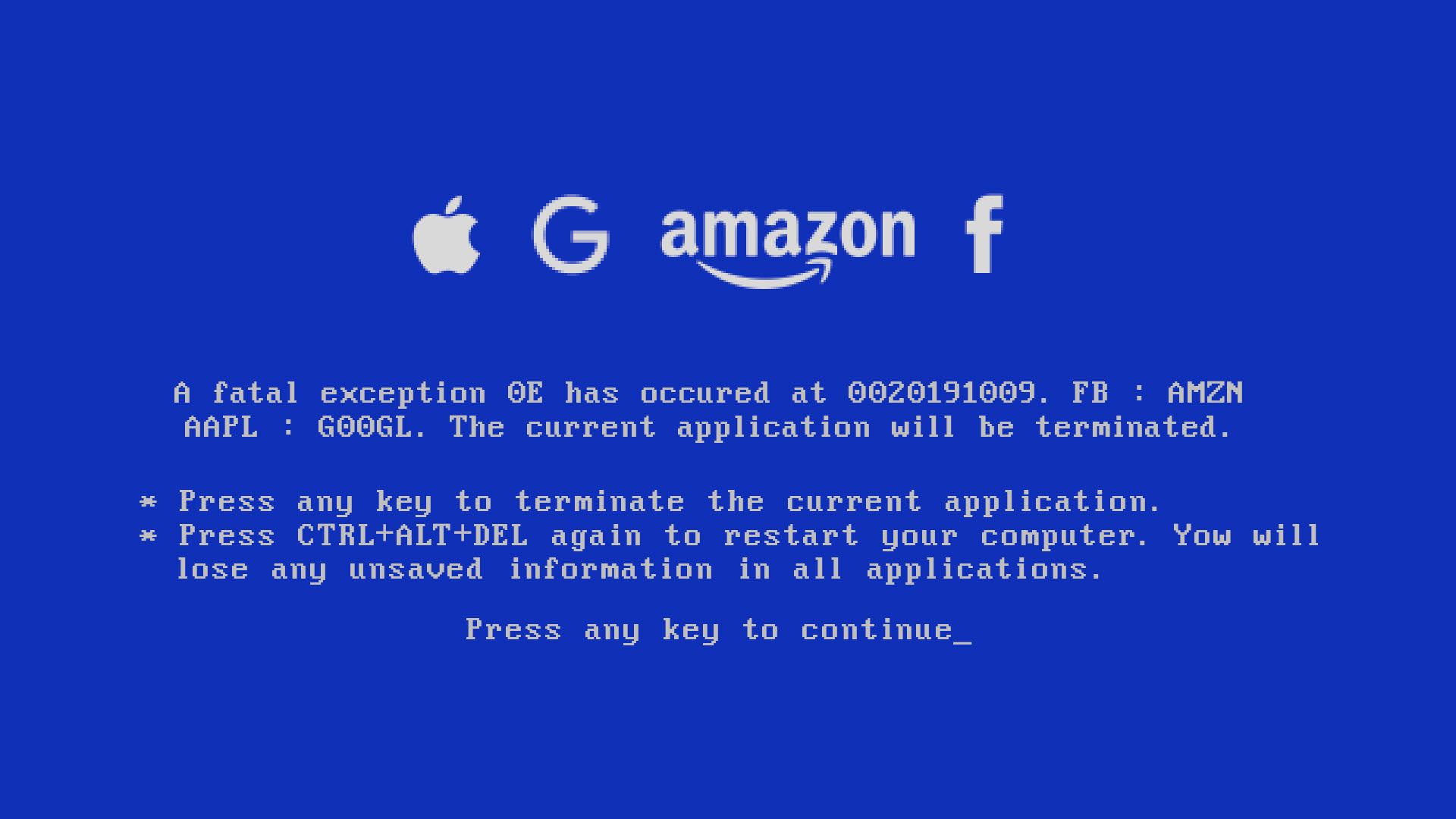For tech, it's all hard problems now
Add Axios as your preferred source to
see more of our stories on Google.

Illustration: Eniola Odetunde/Axios
The tech industry spent the last two decades connecting the world and getting computers into every home and hand — but that's turning out to have been the easy part. Now, every problem tech companies face is fiendishly hard.
Driving the news: Sen. Elizabeth Warren (D-Mass.) unloaded on Facebook Monday:
"Facebook has incredible power to affect elections and our national debate. Mark Zuckerberg is telling employees that he views a Warren administration as an “existential” threat to Facebook. The public deserves to know how Facebook intends to use their influence in this election."— Sen. Warren, on Twitter
Why it matters: The last time presidential candidates were warning about interference in U.S. elections, the interloper was Russia. Now, it's Facebook — and the entire industry it sits atop.
The big picture: Facebook, Google, Amazon and Apple have entered a world where their product innovations and profit margins are beginning to matter less than their ability to navigate treacherous political, social, and ethical rapids.
- Everywhere you look, far beyond the loudest headlines about hate speech and partisan bias online, tech companies face conflicting imperatives from their customers, governments, stakeholders and critics.
1. Security vs. privacy
- Americans want tech to make their daily lives safer — but they also want companies to keep their information private.
- No one in industry or government can easily reconcile those wishes.
- Smart doorbells can protect homeowners' front yards — but they also invoke dystopian scenarios of 24/7 surveillance on every street.
- Encrypting text messages protects them from advertisers, scammers and snoops. Law enforcement authorities fear it will also make it harder to stop human trafficking and remove images of children's sexual abuse.
- Big company efforts to make internet infrastructure more secure can look like monopolistic behavior to critics, as Google is discovering with its advocacy of the DNS-over-HTTPS standard.
2. Promoting freedom abroad vs. regulation at home
- The Trump administration has begun writing protections for internet companies resembling U.S. law into new trade pacts, including one recently signed with Japan and the pending USMCA deal with Mexico and Canada, the New York Times reports.
- Meanwhile, the same U.S. law — Section 230 of the Communications Decency Act, which protects online platforms from liability for user-contributed content even when that material is edited or moderated — is under fierce attack in Congress from bipartisan critics, who argue it gives tech firms too much power to squelch speech.
3. The lure of convenience vs. the value of resilience
- The American public has broadly embraced Amazon's e-commerce model, even as some feel twinges of remorse over the death of local retail.
- Amazon's near-monopoly means it may have to shoulder more public responsibility and more regulation, and critics want it to stop competing as a seller on its own platform.
- Meanwhile, the now-dominant software-as-a-service model, which offers economies of scale to suppliers and convenience to consumers, is showing its geopolitical vulnerability: Adobe cut off all its customers in Venezuela this week after the U.S. tightened trade sanctions on that nation.
4. The ideal of transparency vs. the reality of disinformation
- Facebook has long promised to help solve the "truth decay" problems its service has deepened by providing academic researchers with the data they need to study the issue, but the effort has stalled.
- That's in part because the company also wants to avoid handing troves of data to third parties who could misuse it — after all, that's where the Cambridge Analytica scandal that kindled its loss of public trust started.
Between the lines: Some experts hold that all these issues are problems for only a subset of the tech industry — namely social media platforms.
- But it's hard to see how any players will be able to sidestep the flood of dilemmas.
- Social media platforms only work because they sit on top of the internet itself. That depends on a mountain of hardware and software, including routers, network protocols, databases, server farms, and devices at the end like your phone and laptop, as well as the power that keeps it all running.
- Our society is tech all the way down.
Our thought bubble: The tech industry still commands such a reserve of money and talent that it might find a path through this maze.
- Facebook's careful, creative effort to create a "Supreme Court"-like appeals board for content moderation decisions is one promising example.
- Yes, but: Too often, tech leaders and insiders lack knowledge of history, sociology, psychology, and themselves — and their optimistic self-blindness has often been to blame for the dilemmas they now face.
The bottom line: Policymakers and engineers are both accustomed to making and living with tradeoffs, but someone has to make a final call over where these choices land. The fight now is over who that will be: companies, governments, or the public.
